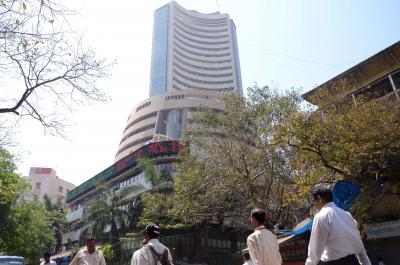Latest Sensex rally of 3,000 points to reach milestone of 67,000 points occurred in 13 sessions

New Delhi, July 24: While the rally between 63,000 to 64,000 points in the Sensex milestone took about 144 sessions or 7.1 months, the latest 3,000 points to 67,000 occurred in 13 sessions, says Sriram BKR, Senior Investment Strategist at Geojit Financial Services.
Sensex crossed and close above 67,000 points for the first time on July 19, with unfettered FPI flows into Indian Equities.
The latest 7,000-point surge from 60k took place in 450 sessions or 22.1 months. It took 31.3 years for the Index to climb the 30,000 points milestone, in Apr’17. The next 30,000 points got added over the next 4.4 years (a rise of 100 per cent), Sriram said
The BSE’s Total Market Capitalization crossed the prominent 300 trillion mark by day end closing levels, and reached Rs.301.70 lakh crore on July 6, with more new issues and listings in the recent months.
BSE’s Total M-Cap jumped by over Rs 6 lakh crore in three sessions, during the same time when Sensex moved from 66,000 to 67,000 points, Sriram said.
Sensex Total Return Index, stood 1.54 times the price index, which was 1.06 times in 1999 and 1.41 times when Sensex crossed 30,000.
Sensex Average EPS computed by the trailing 12M PE as of June 23, stood at around Rs 2,706, a 10 per cent growth YoY, 29 CAGR over 2 years and 20 per cent CAGR in 3 years.
India was generally looked upon as a Bright spot (refer IMF reports and coverages) among the major world economies bringing record foreign flows to equities, that helped markets scale higher, Sriram said.
Sensex CAGR as measured by Price Return Index for the past 20 years stood at 15.5 per cent & by Total Return Index it was 17.2 per cent, as of June 23.
In terms of investment’s growth, Rs1,00,000 invested in June 2003 would be worth around Rs 24 lakhs as of June 30 in TRI terms (& around Rs 18 lakhs as per PRI). Corporate Earnings of Indian companies for Q1 FY24, started getting reported by Indian companies.
Going forward, market valuations would be decided based on the outcome of earnings growth and the growth visibility across sectors.






